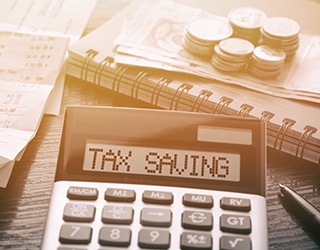Often, investors find themselves contemplating whether they should opt for equity or debt investments. This is seen particularly with first time investors or those new to the financial markets and investments world. At other times, some investors are just looking to diversify their portfolio for regular re-balancing. That’s where Balanced Funds come as an option.
What are balanced funds?
Balanced funds or as they are sometimes called hybrid funds are essentially a combination of debt and equity mutual funds. The allocations are with a proportion in equity and debt instruments. The funds stick to their set ratio for generating income as well as capital appreciation.
These funds are recommended by many for first time investors as they cater to those that have very little appetite for risk but are seeking capital appreciation.
Why invest in Balanced Funds?
The main gain of investing in these funds is diversification of your investment portfolio. The fund manager re-balances the fund as per requirements and handles the asset allocations. It suits well for investors looking for gains from the stock markets but are not prepared for the volatility in the markets. Experts opine that all kinds of investors should ideally allocate some portion of their investments into balanced funds.
The appeal also lies in the fact that these funds are more or less insular to sudden changes in sentiment, panics, or rapid changing mood in markets.
It does not obviously promise the kind of returns one would expect from, say, diversified equity funds, however, for the more conservative and prudent investor, balanced funds are a healthy long term growth prospect with usually a spike free progression graph. Balanced Funds, among other things, also offer the benefit of risk adjusted returns. Hybrid funds are good for people who are looking to invest a small portion of their income on a regular basis. Another major pro for such investors is that it allows one to withdraw systematically meanwhile taking care of the right asset allocations.
What are the risks while investing in balanced funds?
As with all mutual funds, they are not completely safe from risk. It’s a common myth among new investors that low volatility translates to risk free investment which is far from realities of investments. These funds carry their own fair share risks . One of the primary factors playing the role here is that the investors doesn’t call the shots on the choice of funds. This decision power lies with the fund manager, rightly so in most cases, as they are professionally trained and experienced to manage such investments unlike many investors who have little to no knowledge about it.
As an investor, when you hold only a particular class of funds, you can move some of the funds into others as part of a diversification for various purposes like taxes, wealth management etc. On the other hand, you cannot do the same in case of balanced funds as the same mutual fund is the owner of both asset classes—equity and debt.
How do I choose the right balanced fund?
It is paramount for an investor to choose a fund that caters to their long-term goals. When you consider choosing the fund among the options in front of you, history doesn’t hold prime position. While making the decision on a balanced fund, an investor must analyse thoroughly both the asset classes.
Factors like fund house, manager, value of assets, portfolio constancy play a big role while looking at equity class. One should ideally also take into account the risks the fund has taken, the size of the assets, and returns historically along with the track record. At the same time, when one is connecting the dots in the debts funds assessment, areas of focus should ideally be asset quality, profile of the fund manager, their qualifications and records, how sensitive it is to changing rates and how well it caters to your specific needs.
Tax implications for balanced funds
In case of balanced funds, those funds oriented more towards equity, typically over 65 percent, are classified under equity asset class for taxation. As it stands, short term capital gains entail a tax of 15 per cent. Short terms gains are simply gains with a year of equity oriented balance. After the 12 month period, a long term capital gains (LTCG) tax 10 per cent is applicable in case the gains exceed the Re 1 lakh mark.
In case of debt oriented balanced funds, LTCG applies when you hold a fund for over three years. Meanwhile, short term gains draw a 20 per cent tax with benefits of indexation. Simply put, in terms out straight tax advantages, equity oriented balanced funds outweigh debt oriented hybrid funds.



